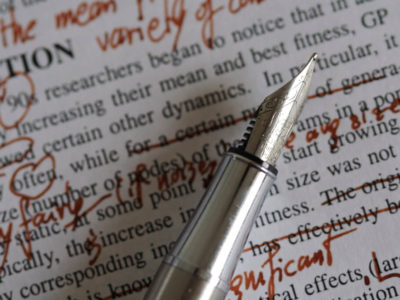Picture it: You stay up all night writing the perfect paper. You’re sure it’s going to get you an “A” and kick your average up a couple points. You zombie sleepwalk to your professor’s office to hand it sans proofreading because ain’t nobody got time for that before Starbucks. When you’re finally awake, you realize: You’ve done the one thing that could take your paper from hero to zero. You used “your” when you should’ve used “you’re.”
Here are 19 other grammar sins that will have your professors sending you to confession.
1. Their, They’re and There
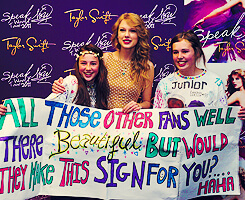
Their is possessive. They’re means they are. There is a location.
2. Me versus I
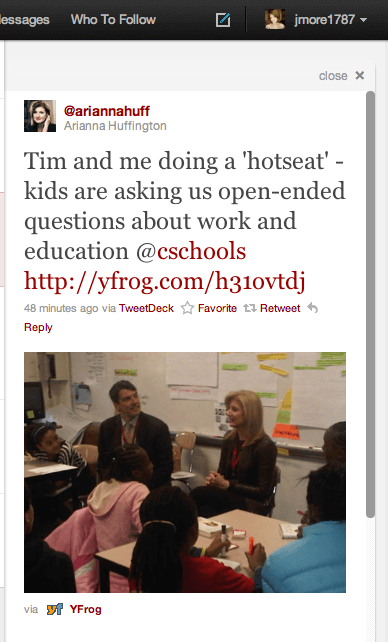
Me and my friends went to dinner. Right? Nope. Take out the ‘and my friends.’ Me went to dinner? Try again, caveman.
3. Should/Would/Could of
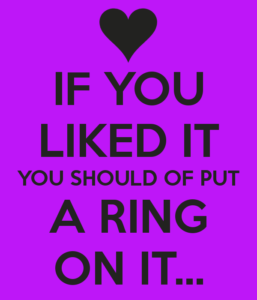
It’s have. Not of.
4. Lie versus Lay
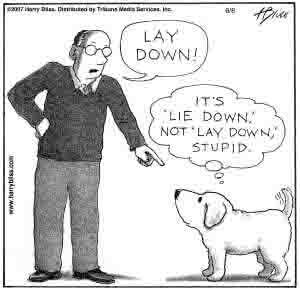
Lay needs an object. You can’t lay down, you have to lay something down.
5. Much versus Many
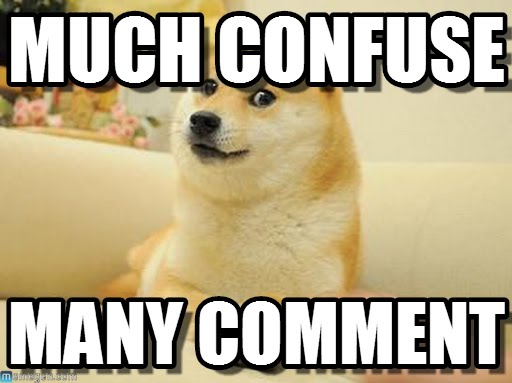
Things that are many can be counted (stairs, babies, shirts, etc.). Things that are much can’t (peace, knowledge, violence, etc.).
6. Then versus Than
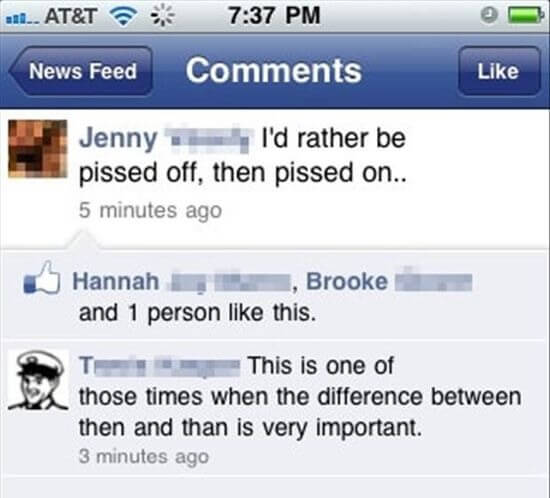
Then is a sequential word, than is a comparative. You eat a cupcake and then you eat another (you animal). You like Ice T more than you like Matthew McConaughey (ANIMAL).
7. Affect versus Effect
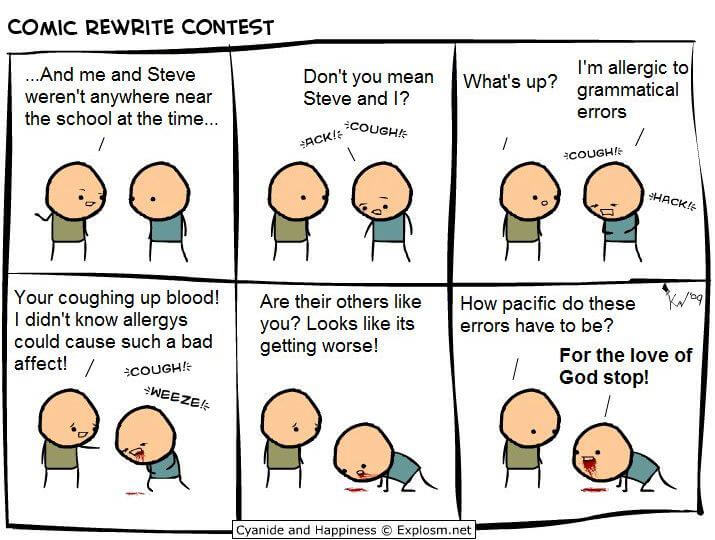
Affect is a verb, effect is a noun. Cute little trick: Think of the word raven. AV (affect, verb) and EN (effect, noun).
8. Irregardless
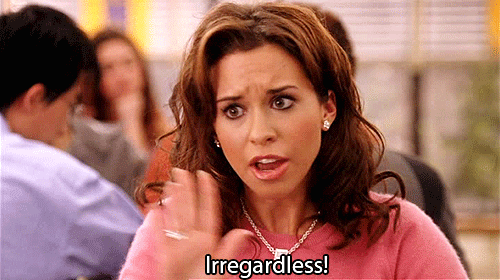
Irregardless is not a word. See that red squiggly line under it? That means it’s bad and dumb.
9. Apostrophes
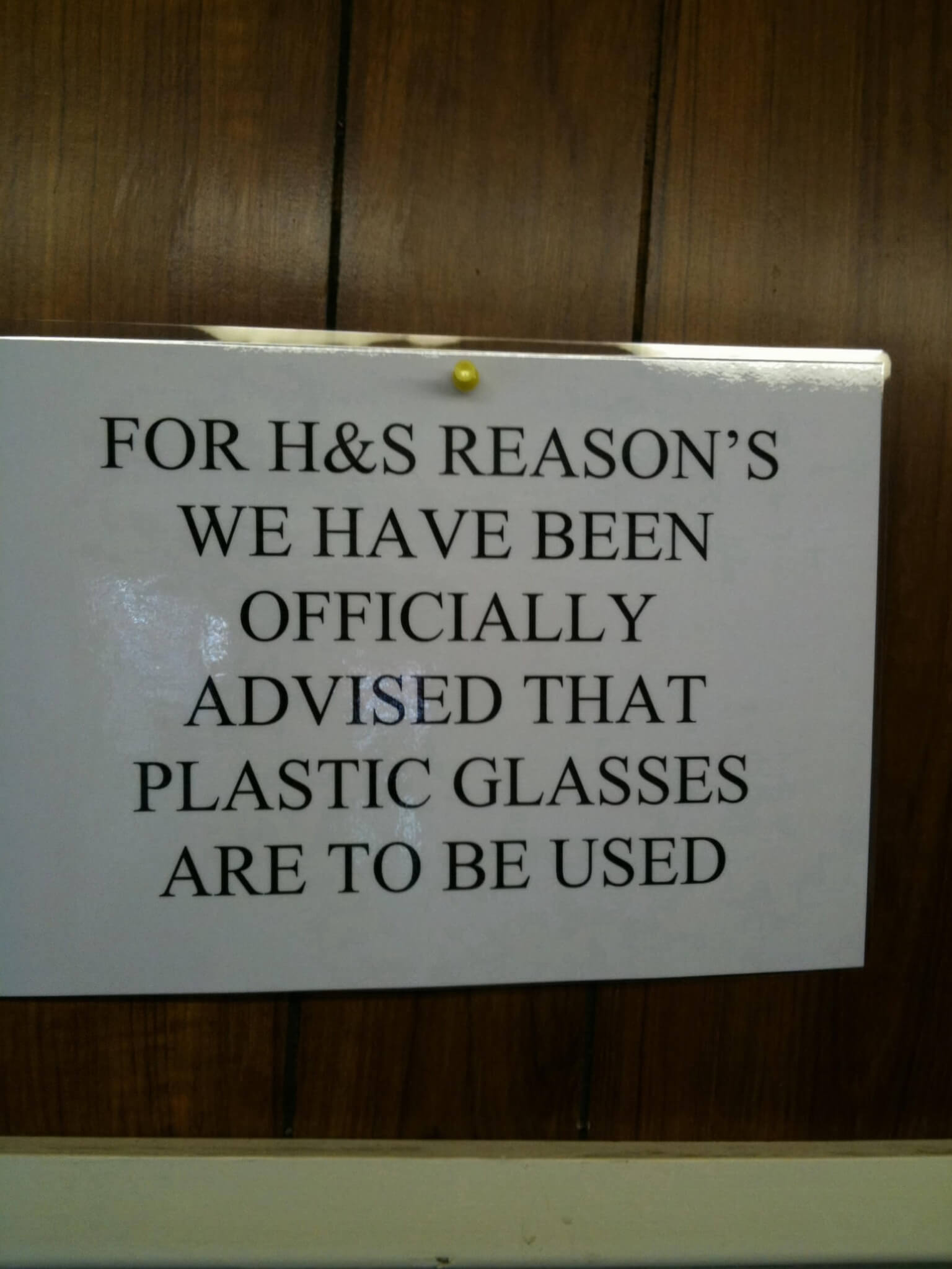
Please don’t make it rain apostrophes. They have two uses: possessives and contractions. That’s it. They’re not used in plurals. You passed out the papers, not the paper’s.
10. Commas
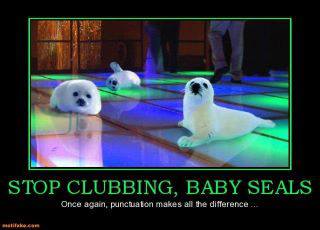
Chill with the commas y’all. Please, don’t, put, them, after, every, word. Doesn’t it stress out the voice in your head to read like that?
11. Except versus Accept

Accept is an inclusive term: We’re accepting applications. Except is exclusive: We’ll take all applications, except yours.
12. Good versus Well
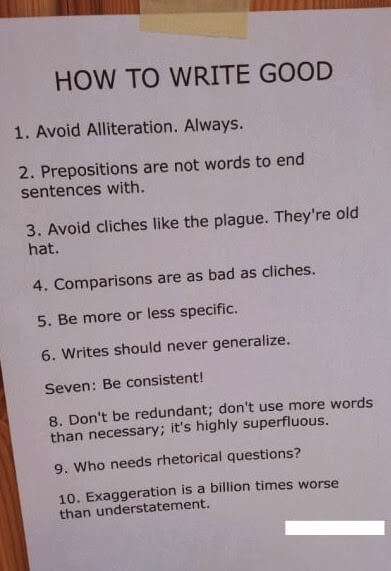
Good is an adjective, meaning it modifies nouns: That was a good GOT finale. Well is an adverb, meaning it modifies verbs: You stabbed that character well.
13. Quote Punctuation

When you’re quoting something, you put your punctuation inside the quotation marks. “How are you?” See how the question mark is inside the quotation? That’s what it should look like all the time.
14. To, Too and Two
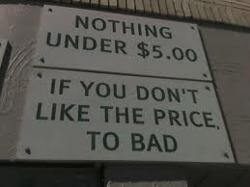
I gave his gift to him. I bombed the game today. The chem test, too (also). There were two (2) pieces of pizza left. Different words, different meanings, people.
15. A Lot
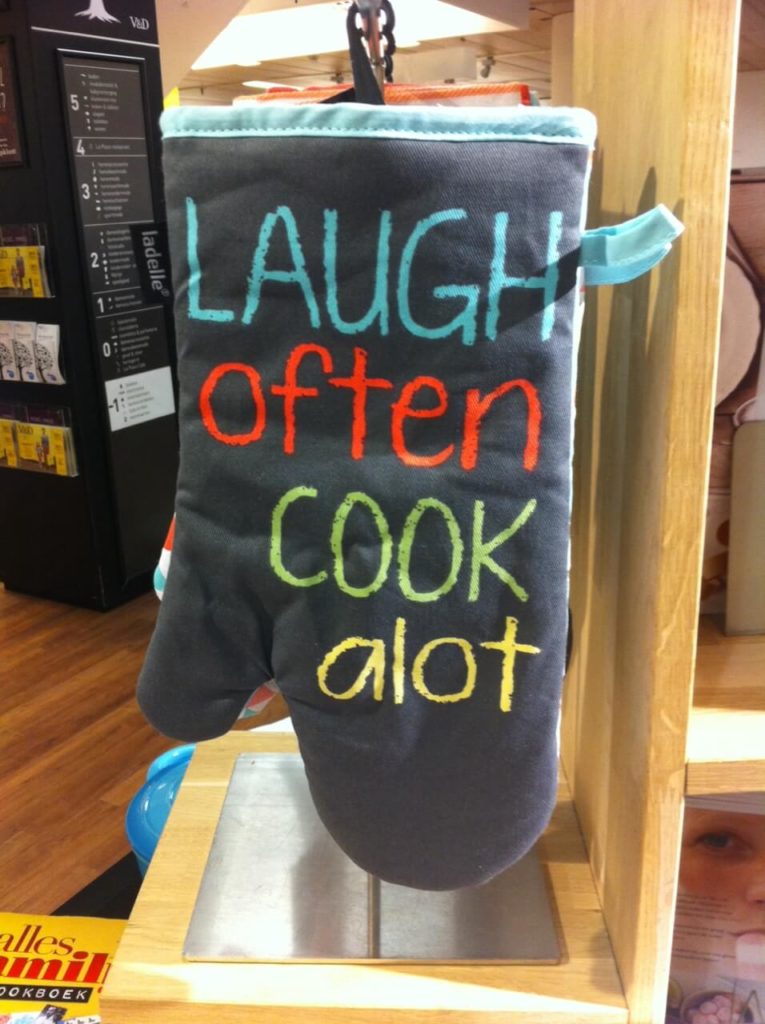
Two words. Not one.
16. “I Could Care Less.”
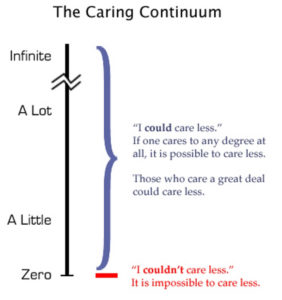
That actually means the exact opposite of what you want it to mean. That means you care a lot. You should be saying that you couldn’t care less, meaning there is no more care for you to give.
17. Loose versus Lose

You lose a penny or your boyfriend. Your clothes are too loose (same with your morals).
18. Literally
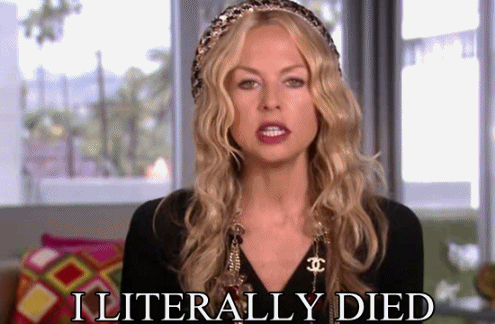
I know basic girls everywhere won’t be pleased, but the colloquial usage of literally has completely warped its real meaning. You’re not “literally going to die of embarrassment.” That “actually” can’t happen.
19. I.e. versus E.g.
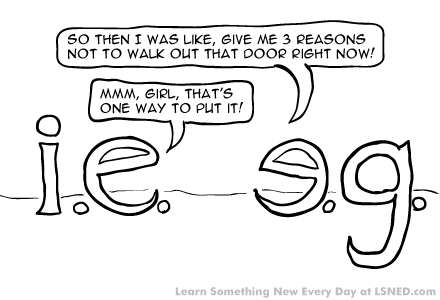
This one’s pretty nit-picky, but hey, grant me a bit of leeway with this. I.e. means in other words, so you use it when you want to phrase something in another way. E.g. means for example, so you use it to list options.
I just saved your GPA. I’ll accept gratitude in the form of cash and “AMEN!” comments.
Rep your Favorite Classics with our Literary Dorm Decor

